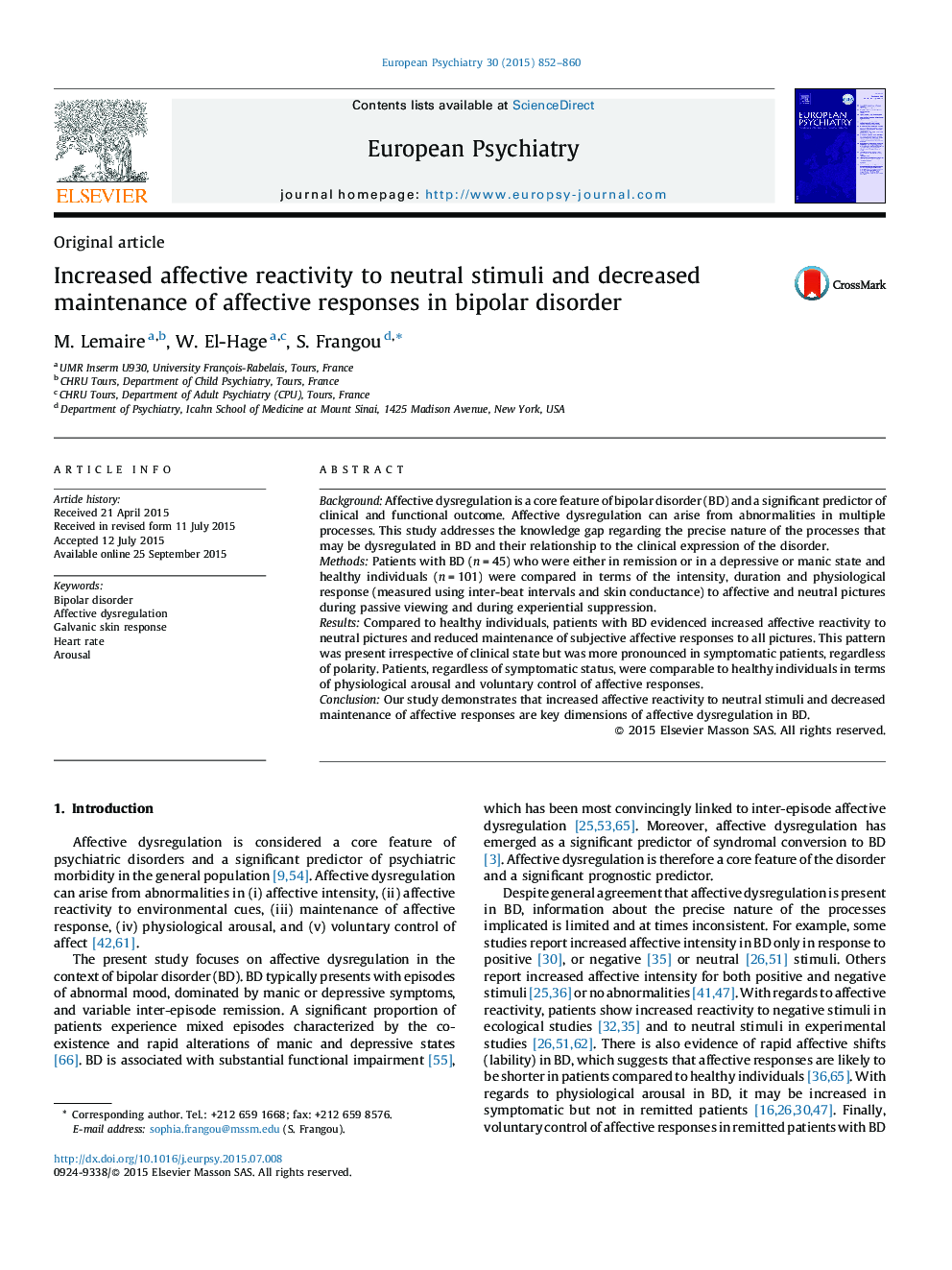| Article ID | Journal | Published Year | Pages | File Type |
|---|---|---|---|---|
| 4183712 | European Psychiatry | 2015 | 9 Pages |
BackgroundAffective dysregulation is a core feature of bipolar disorder (BD) and a significant predictor of clinical and functional outcome. Affective dysregulation can arise from abnormalities in multiple processes. This study addresses the knowledge gap regarding the precise nature of the processes that may be dysregulated in BD and their relationship to the clinical expression of the disorder.MethodsPatients with BD (n = 45) who were either in remission or in a depressive or manic state and healthy individuals (n = 101) were compared in terms of the intensity, duration and physiological response (measured using inter-beat intervals and skin conductance) to affective and neutral pictures during passive viewing and during experiential suppression.ResultsCompared to healthy individuals, patients with BD evidenced increased affective reactivity to neutral pictures and reduced maintenance of subjective affective responses to all pictures. This pattern was present irrespective of clinical state but was more pronounced in symptomatic patients, regardless of polarity. Patients, regardless of symptomatic status, were comparable to healthy individuals in terms of physiological arousal and voluntary control of affective responses.ConclusionOur study demonstrates that increased affective reactivity to neutral stimuli and decreased maintenance of affective responses are key dimensions of affective dysregulation in BD.
